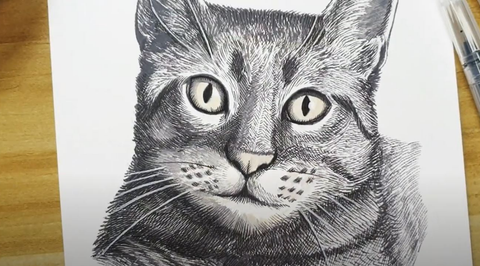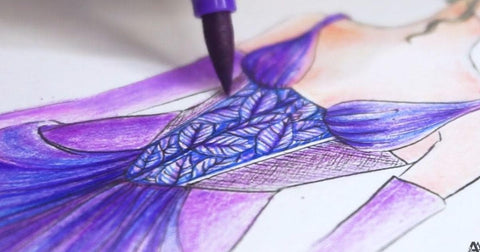Into the Creative Mind of Georgia O'Keeffe: Her Art, Style, and Story
Last Updated: July 29, 2024
“My painting is what I have to give back to the world for what the world gives to me." - Georgia O'Keeffe
Georgia O'Keeffe, a pioneer of American modernism, captivated the world with her wondrous paintings of enlarged flowers, New York skyscrapers, and Southwestern landscapes. Her unique vision and bold style continue to inspire artists and admirers alike.
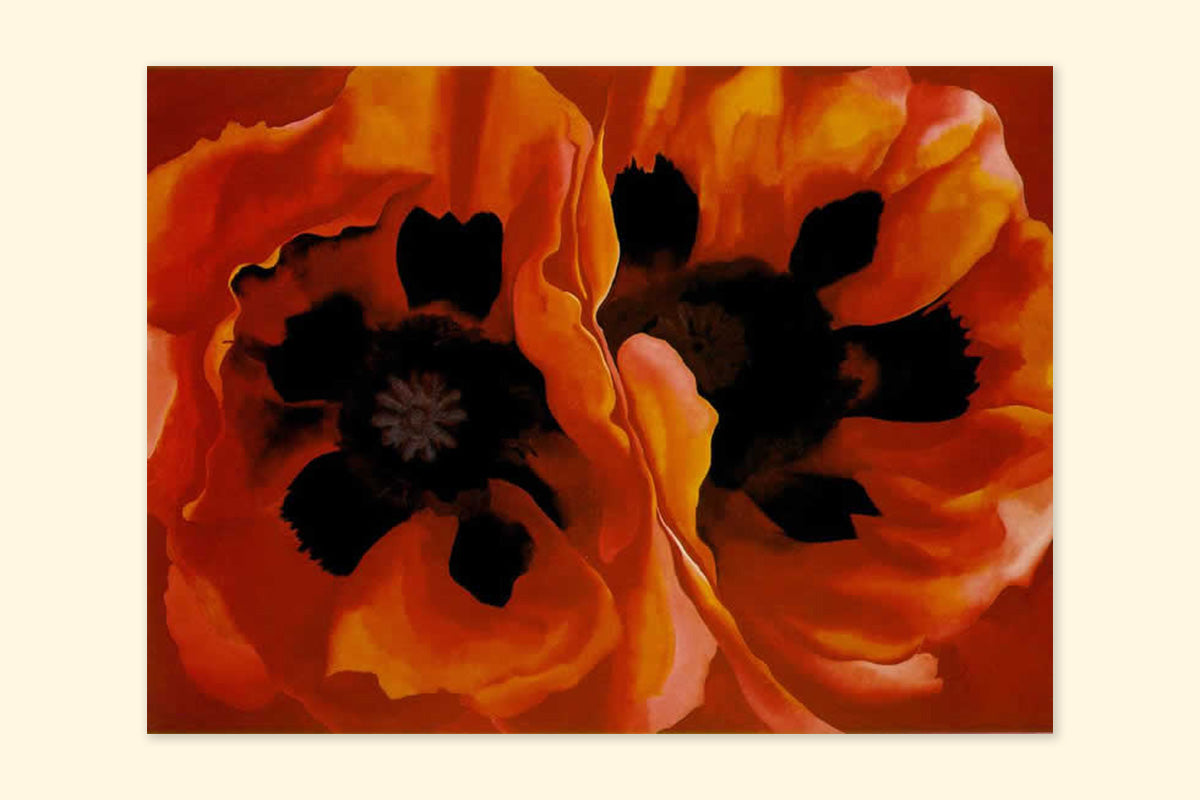
In today’s blog post, let’s dive into the creative mind of Georgia O'Keeffe, exploring her art, style, and the story behind her iconic masterpieces.
The Early Years
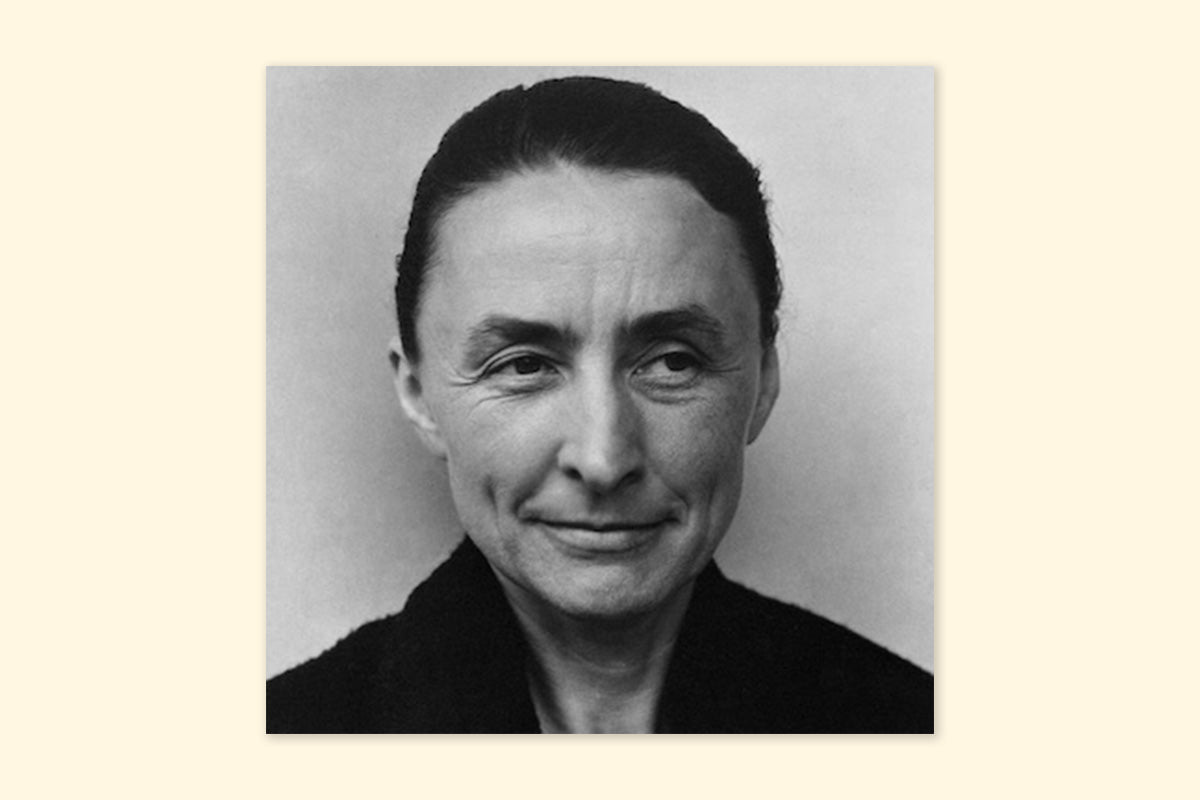
Born in 1887 in Sun Prairie, Wisconsin, Georgia O'Keeffe showed an early aptitude for art. After studying at the Art Institute of Chicago and the Art Students League in New York, she began her career as an artist. During her time in New York, O'Keeffe was exposed to the modernist movements of the early 20th century, which would greatly influence her work.
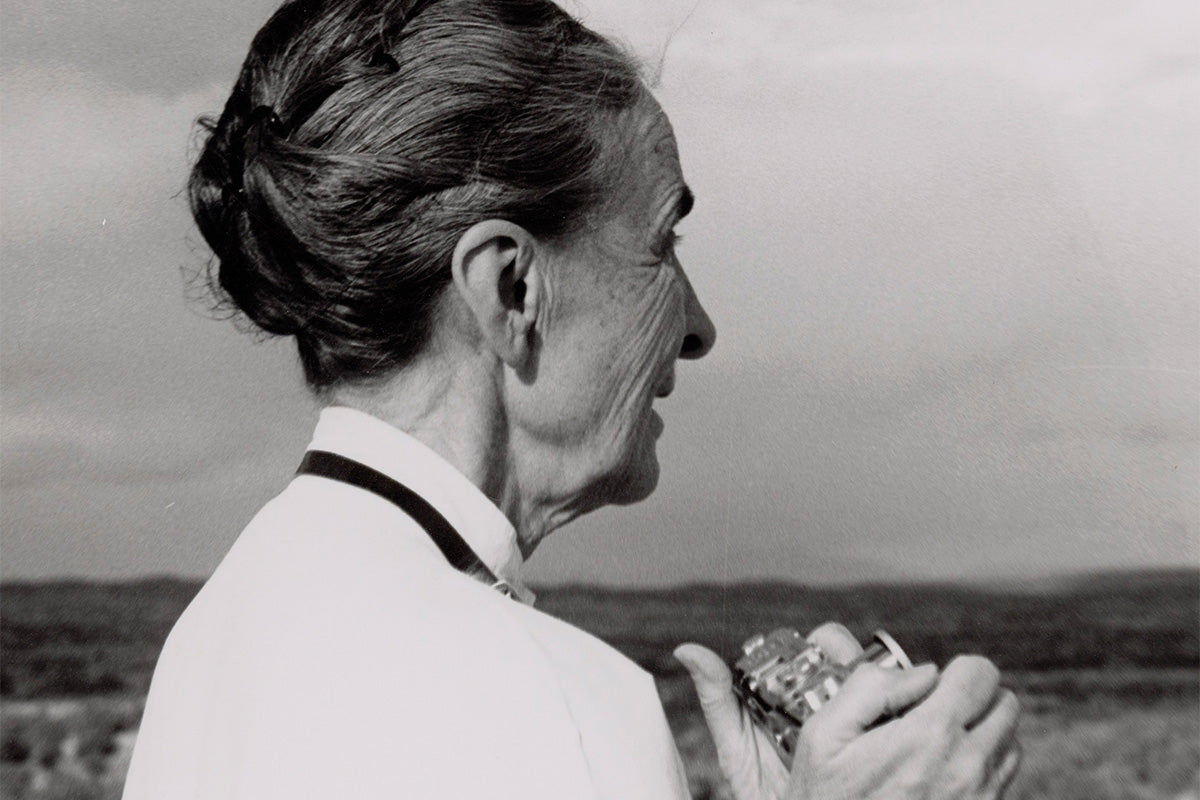
Georgia O’Keeffe with Camera, 1959 (Photo by Todd Webb)
Artistic Style
Bold colors, strong lines, and a focus on natural forms characterize O'Keeffe's artistic style. She had a remarkable ability to capture the essence of her subjects, whether it be a flower in bloom or the rugged terrain of the Southwest. One of her most famous series of works depicts close-up views of flowers, such as her iconic painting "Jimson Weed/White Flower No. 1," which showcases the intricate beauty of nature in stunning detail.
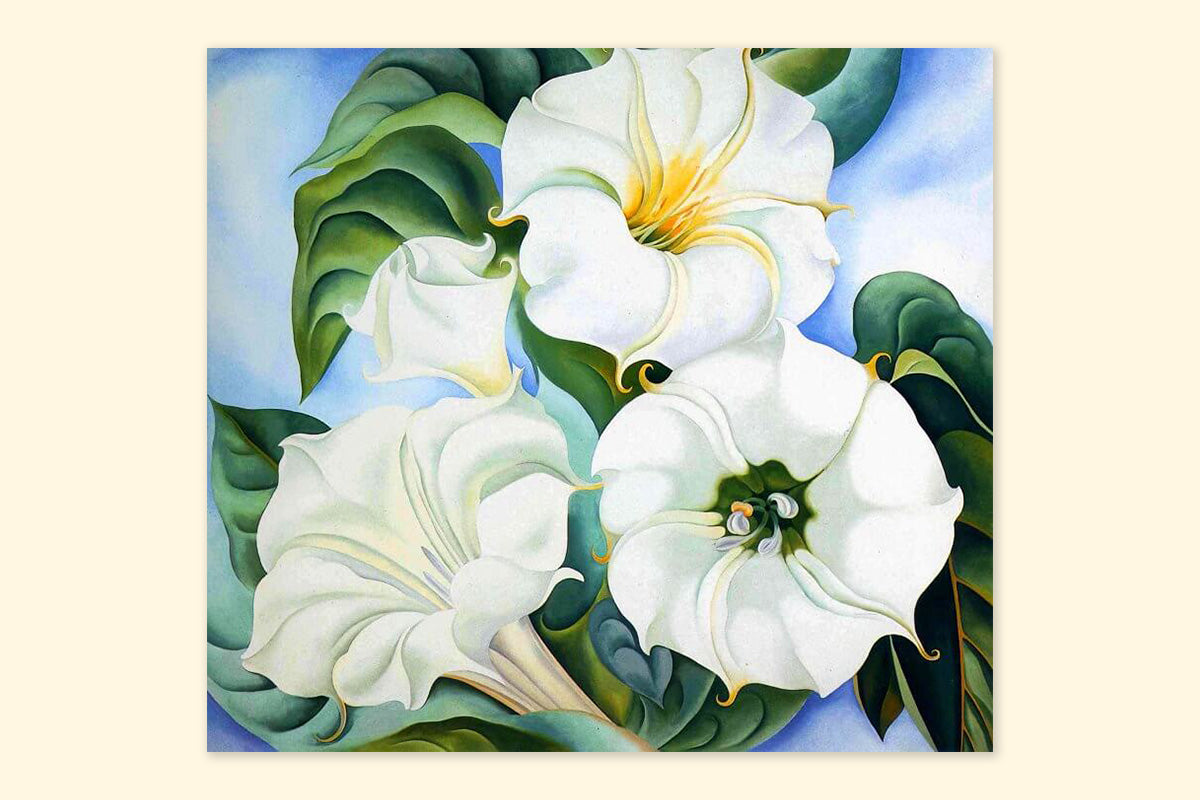
Jimson Weed/White Flower No. 1 (1932)
Another defining aspect of O'Keeffe's style is her use of abstraction. She often simplified forms and distorted proportions to create compositions that were both visually striking and emotionally resonant. Her paintings of New York skyscrapers, such as "Radiator Building—Night, New York," capture the energy and dynamism of the city while also evoking a sense of awe and wonder.

Radiator Building—Night, New York (1927)
The Southwest
In the 1920s, O'Keeffe began spending time in New Mexico, where she found inspiration in the rugged landscapes and vibrant colors of the desert.
The stark beauty of the Southwest would become a recurring theme in her work, as seen in paintings like "Black Mesa Landscape, New Mexico" and "Red Hills with Pedernal." O'Keeffe's time in the Southwest marked a turning point in her career, as she shifted her focus from urban subjects to the natural world.
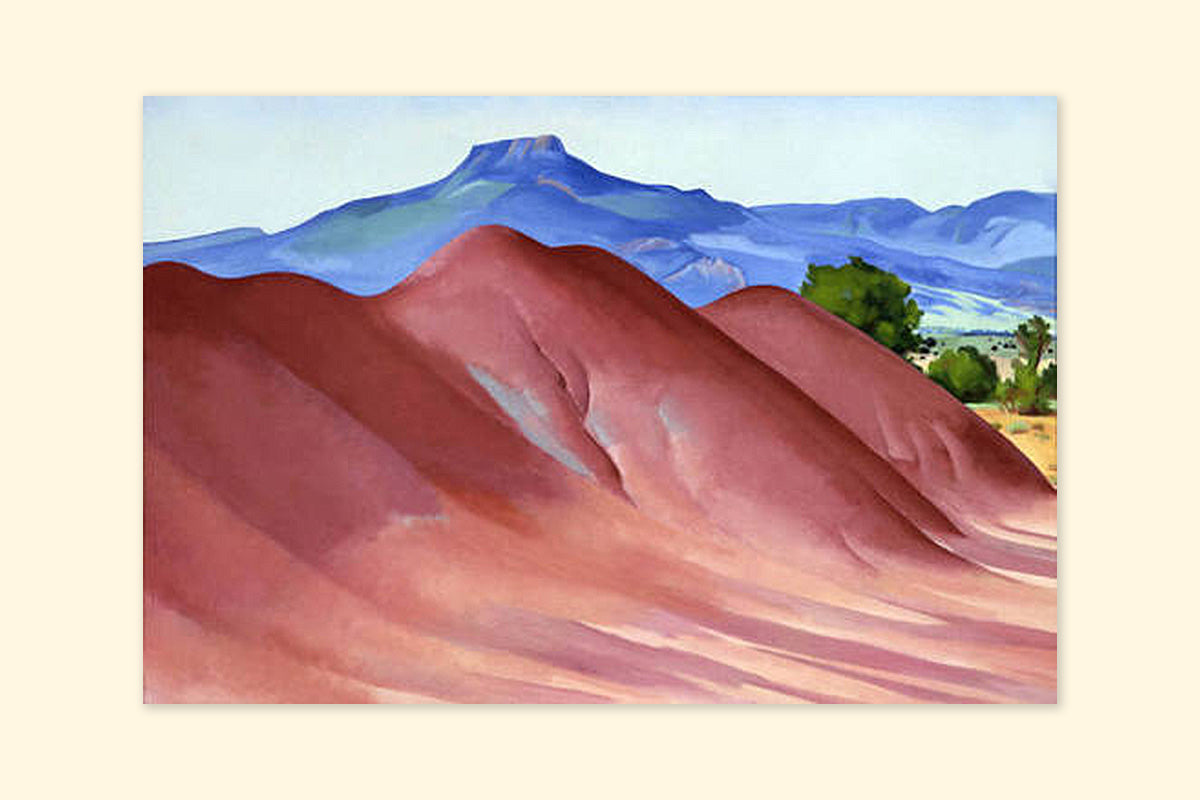
Red Hills with Pedernal (1936)
Personal Life
Beyond her artistic achievements, Georgia O'Keeffe led a fascinating life filled with passion and independence. She forged a close relationship with the photographer Alfred Stieglitz, who became her mentor, promoter, and eventually her husband. Their partnership was both professionally and personally fulfilling, with Stieglitz capturing iconic photographs of O'Keeffe and championing her work to a wider audience.
A Lasting Legacy
Georgia O'Keeffe's impact on the art world – her bold artistic vision, innovative style, and pioneering spirit – continues to inspire artists around the globe. O'Keeffe's work remains as relevant and influential as ever, from her early experiments with abstraction to her later explorations of the Southwest.
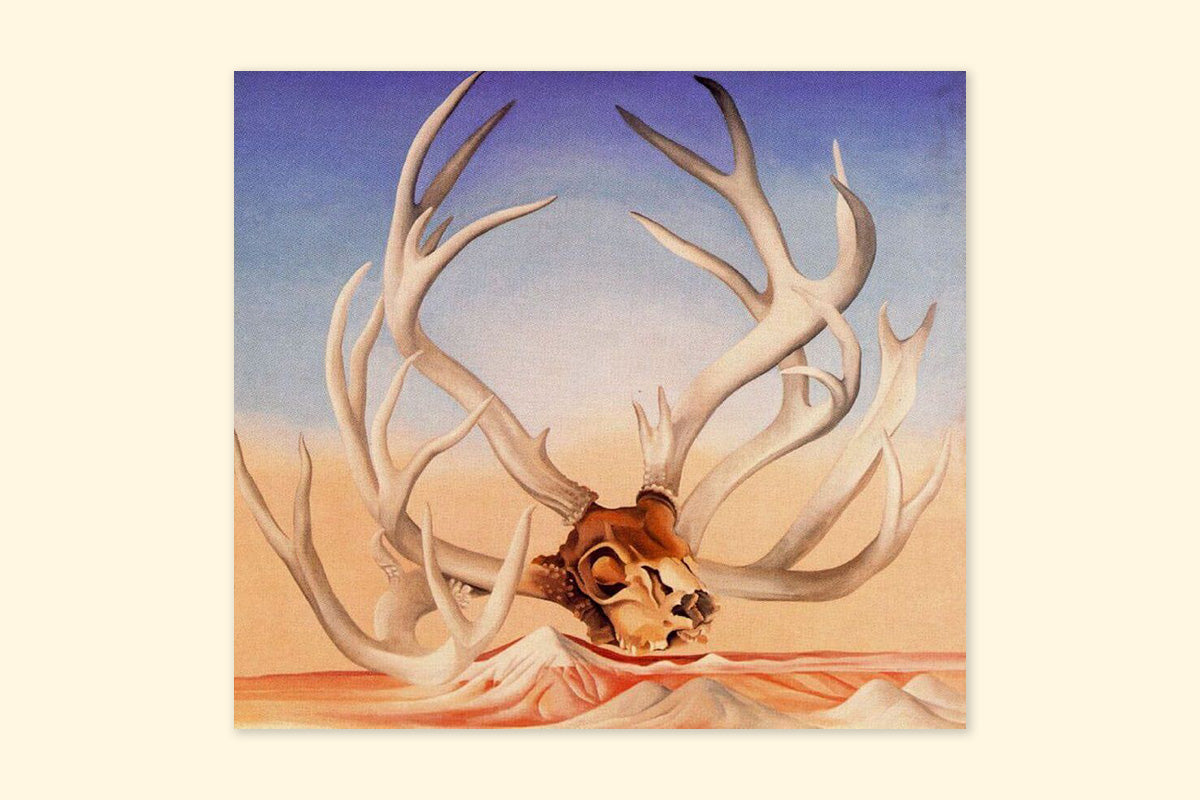
Georgia O’Keeffe’s Famous Artworks
O'Keeffe's prolific career spanned several decades and encompassed a wide range of subjects and styles. Each piece reflects her unique perspective, bold artistic vision, and deep reverence for the beauty of the world around her. Here are some of her most notable works:
1. "Jimson Weed/White Flower No. 1" (1932)
This painting is one of O'Keeffe's most famous works and depicts a close-up view of a white flower. It highlights her mastery of capturing the intricate details and beauty of nature.
2. "Black Mesa Landscape, New Mexico" (1930)
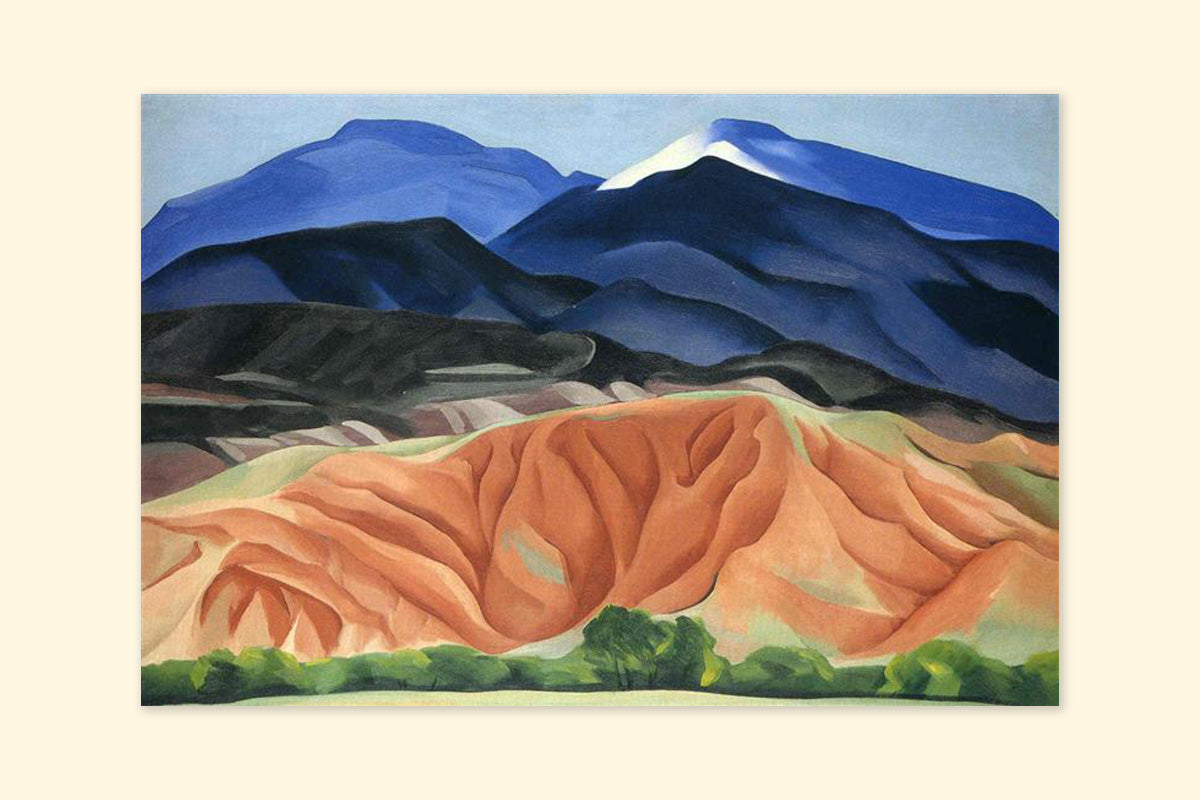
Black Mesa Landscape, New Mexico (1930)
This painting showcases O'Keeffe's fascination with the Southwestern landscape, depicting the rugged terrain and dramatic play of light and shadow.
3. "Radiator Building—Night, New York" (1927)
In this painting, O'Keeffe portrays the New York skyline at night, focusing on the geometric shapes and dynamic energy of the city's architecture.
4. "Cow's Skull: Red, White, and Blue" (1931)
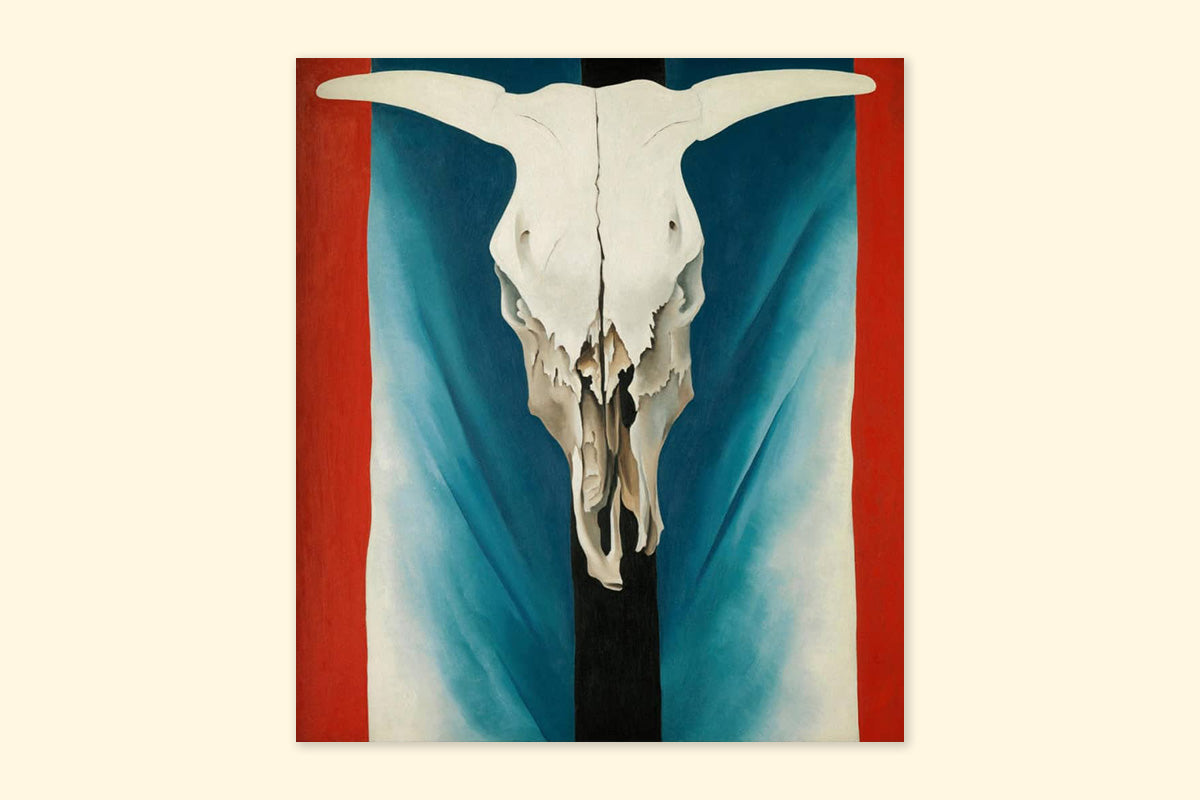
Cow's Skull: Red, White, and Blue (1931)
This iconic painting features a cow skull adorned with patriotic colors, symbolizing O'Keeffe's connection to the American Southwest and her exploration of themes related to life and death.
5. "Red Hills with Pedernal" (1936)
O'Keeffe frequently painted the Pedernal mountain in New Mexico, and this piece captures its distinctive form against a backdrop of red hills and sky.
6. "Sky Above Clouds IV" (1965)
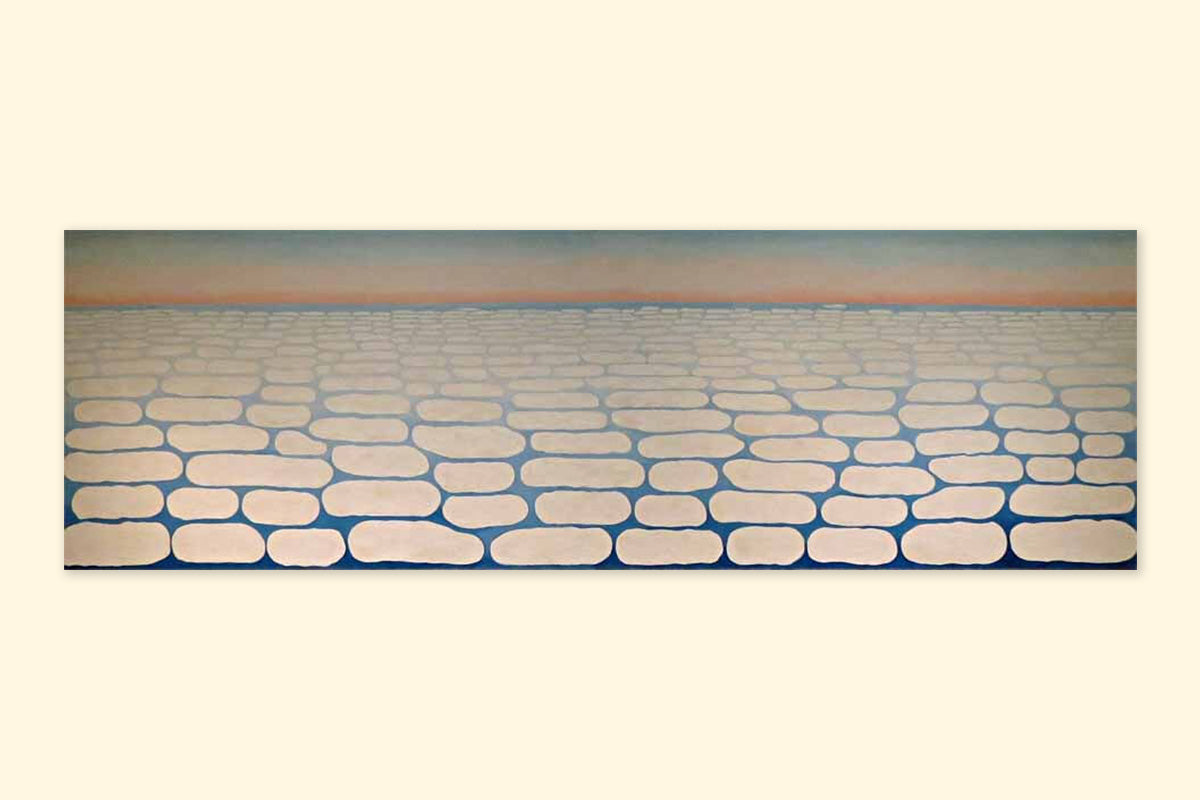
One of O'Keeffe's later works, this large-scale painting depicts an expansive sky filled with billowing clouds, reflecting her interest in the vastness and mystery of the natural world.
Revering Nature, One Artwork at a Time
In the creative mind of Georgia O'Keeffe, we find a relentless pursuit of beauty, a reverence for nature, and a fearless commitment to artistic expression. Her paintings continue to captivate viewers with bold colors, striking compositions, and timeless appeal.
As we reflect on her legacy, we are reminded of the power of art to transcend boundaries and touch the human spirit.
We hope the life and times of O’Keeffe have inspired you to continue pursuing art and creating your own masterpieces. And, in case you need more inspiration from other amazing artists, feel free to drop by The Creative Corner. Happy painting!




